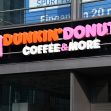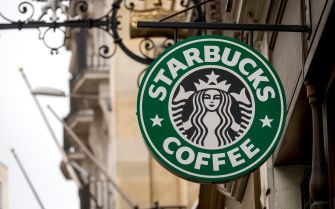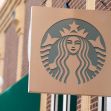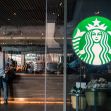Starbucks employees in Illinois, Colorado, and California are accusing the company of violating labor laws by requiring them to pay for new clothing and footwear under a recently updated dress code. Class-action lawsuits were filed in Illinois and Colorado state courts, while workers in California submitted complaints to the Labor and Workforce Development Agency.
The new standards, in effect nationwide since May 12, require employees to wear solid black shirts beneath the company’s green apron, paired with khaki or dark denim bottoms. Shoes must be made of waterproof material and limited to muted colors such as black, brown, or gray. The policy also prohibits more than one facial piercing, bans face tattoos and tongue piercings, and restricts the use of theatrical makeup. Employees who arrive in noncompliant attire cannot clock in for their shifts.
Several workers described the financial impact of the policy in filings. Brooke Allen, who works at a store in Davis, California, said she spent more than $140 on clothing and shoes after being told her attire did not meet the new standards. In Illinois, another worker reported being denied reimbursement for the cost of removing a piercing that violated the updated rules.
The lawsuits cite state laws that require employers to reimburse employees for expenses that are necessary to perform their jobs and that primarily benefit the business. In California, Labor Code Section 2802 requires repayment for all necessary expenditures incurred in the course of employment. Colorado law prohibits employers from imposing costs on workers without written consent. Illinois law, under the Wage Payment and Collection Act, requires employers to reimburse workers for expenses directly related to their duties and incurred within the scope of employment. Attorneys for the plaintiffs argue that Starbucks’ dress code falls under these protections because the clothing serves the company’s branding rather than employees’ personal use.
Starbucks has defended the policy, stating it was intended to create a consistent customer experience and provide clearer guidance for employees. As part of the rollout, the company distributed two black shirts at no cost but did not cover additional expenses.
The lawsuits seek compensation for employees across the affected states, regardless of union affiliation. Starbucks Workers United, the labor group representing more than 600 stores nationwide, filed a separate complaint with the National Labor Relations Board earlier this year over the same dress code policy.






